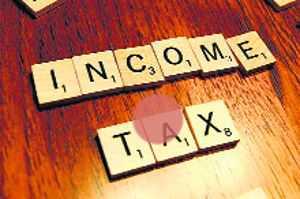
SC Vasudeva
Q. My son opened a PPF account in FY 2012-2013. At that time, he was working with an Indian company. In 2016, he went to Australia and got PR. He had contributed to PPF till 2018. Please clarify whether he can still continue the said account. Can he apply for closing of the account? — Mangal Singh
A proviso to clause 3 of the Public Provident Fund Scheme, 1968, provides that if a resident, who opened an account under the aforesaid scheme and becomes a non-resident during the currency of the maturity period, the account shall be deemed to be closed with effect from the day he becomes a non-resident and interest w.e.f that date shall be paid at the rate applicable to the Post Office Savings Account up to the last day of the preceding month in which the account is closed. The Rule as quoted hereinabove seems to permit the closure of account before the maturity period.
Q. The son of my relative is a Punjab Government employee. He intends to do work in network marketing of a reputed private company after office hours. The company will deposit remuneration in his savings bank account after deducting TDS. Please advise on the following points:
1. Can a Punjab/Central Govt employee work in a private company as part-time or not? If yes, are there any instructions? Please mention.
2. Whether the amount so received from the private company after deducting TDS has to be clubbed in his income received from the Punjab Government or not?
— Ramesh Kumar
a) In my opinion service rules of the government do not permit a government employee to take up any other assignment without the permission of the department concerned.
b) The amount received by him as remuneration would be includible for computing his total taxable income.
Q. Please calculate my tax liability on the following emoluments and deductions for FY 2019-20.
1. Salary (for 2019-20): Rs 7,20,000
2. Income from other sources: Rs 10,000
3. Net income (1+2): Rs 7,30,000
4. Standard deduction: Rs 50,000
5. HRA exempt u/s 10: Rs 56,000
6. Saving u/s 80CC: Rs Rs ,20,000
7. Taxable income (3-4-5-6) Rs 5,04,000
— Ramesh Kumar
This has reference to the statement of your income which you have sent so as to ascertain the correctness thereof. On going through the statement, it is observed that you have not mentioned the amount of house rent paid/payable for the year ending March 31, 2020. This is required as the exemption with regard to house rent allowance is allowable to the extent of least of the following amounts:
a) Actual amount of house rent allowance received by you.
b) The amount by which the expenditure actually incurred towards payment of rent in respect of residential accommodation exceeds 1/10th of the salary due to you for the relevant period.
c) The amount equal to one half of the amount of salary if the accommodation is situated in Mumbai, Kolkata, Delhi or Chennai and in case of accommodation is situated at any other place 2/5th of the amount of salary due to you in respect of the relevant period.
You have also indicated saving u/s 80CC of the Income-tax Act, 1961 to the extent of Rs 1,20,000. There is no deduction provided under Section 80CC of the Act. Presumably, the savings referred to in your query are under Section 80C of the Act. Presuming that the amount of Rs 56,000 is least of the three amounts referred to hereinabove and the savings referred to in your query are under Section 80C of the Act, after allowing rebate of Rs 12,500 under Section 87A of the Act, you would not be liable to pay tax for the assessment year 2020-21. Further, this computation is based on the presumption that you are not a senior citizen.
Q. After my father’s death, my mother received medical reimbursement and 7th Central Pay Commission arrears related to my father in her bank account. She is also getting family pension. Please suggest whether these amounts come under “Income from other sources” or not for income tax purpose.
— Yogesh Sharma
The amount of medical reimbursement should not be chargeable to tax even though it is received after the employee’s demise. The amount of arrears payable to your father under 7th Central Pay Commission should be taxable as “salary income” as it pertains to the period for which your father had served as an employee. The family pension received by your mother would be taxable as “income from other sources” subject to the permissible deduction allowable under Section 57 of the Act.



























